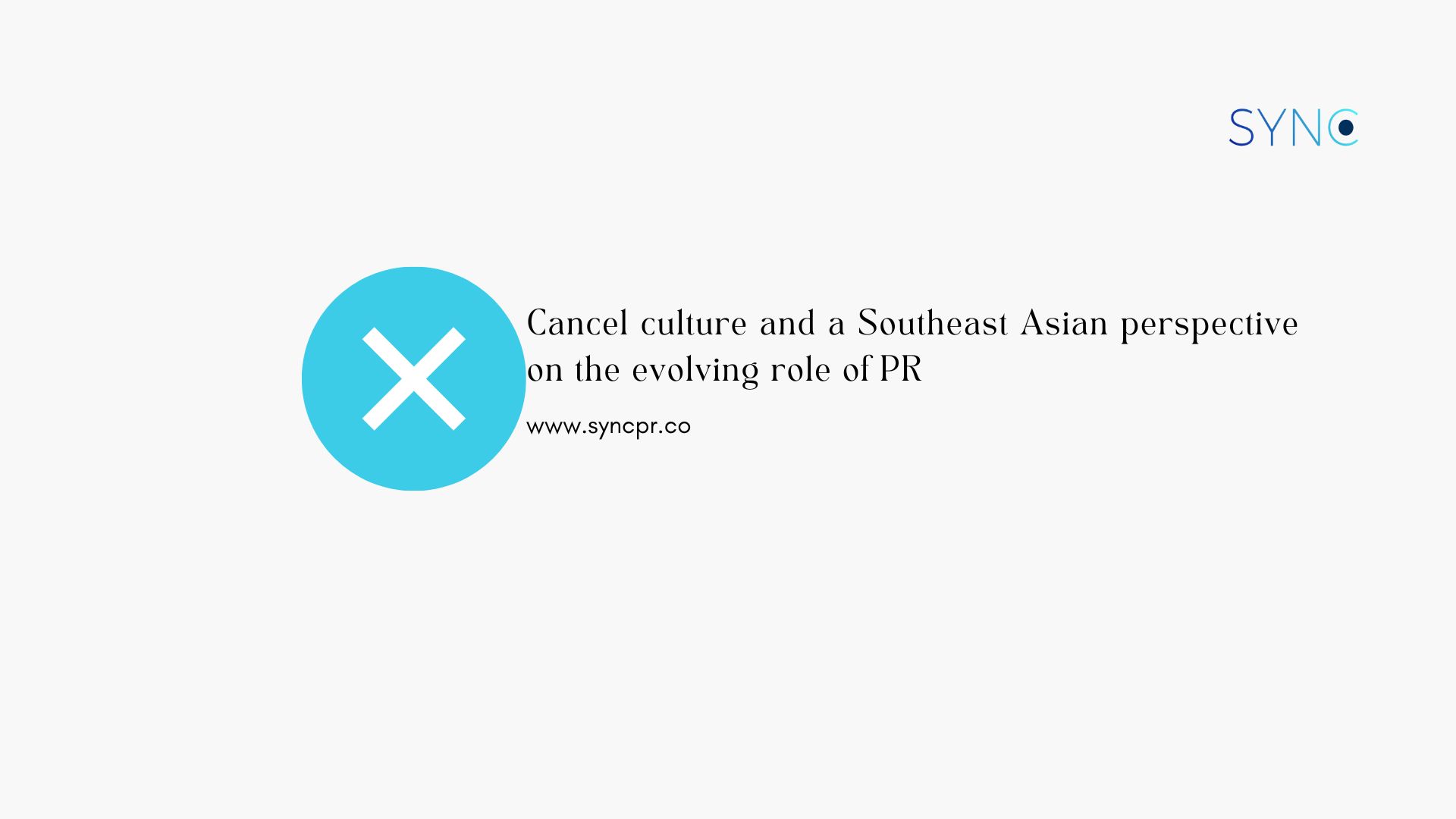“They’re cancelled.” What is cancel culture? It is a situation where a company or an individual is being boycotted, shunned and ostracised for acting in a socially unacceptable way – mainly through social media. It is a potent force that can make or break brands overnight. With the influence of digital mediums and social media, cancel culture has become more prominent in Southeast Asia.
A more online, socio-cultural variation of a PR crisis, its complex nature makes it crucial for startups and PR professionals to understand it and plan for such events, weaving it into their crisis management plans. The rise of cancel culture presents both risks and opportunities. The goal is no longer just damage control but crafting a narrative that resonates with increasingly critical and vocal audiences.
The rise of cancel culture in Southeast Asia
Cancel culture in Southeast Asia has grown in tandem with social media usage, where platforms like Twitter, Instagram, and TikTok have given rise to movements holding individuals and corporations accountable. 31% of Southeast Asians said they can always or often forgive or allow a cancelled individual or group to publicly appear.

In the Southeast Asian region, there is a growing demand for transparency, social responsibility, and authenticity from brands and public figures. This is especially challenging for Southeast Asian brands, including startups. Any misstep, such as a poorly thought-out social media post or a product that is seen as socially irresponsible, can lead to a rapid and widespread negative reaction. This is particularly problematic for startups, as they are more vulnerable and still establishing themselves.
How PR is evolving to address cancel culture
The digital era has empowered the public to engage in real-time, making it harder for brands to stay ahead of the narrative. So, what can brands and PR professionals do to navigate this? We’ve gone ahead and listed some PR approaches to help brands address being “cancelled”.
Pre-emptive strategies
As the saying goes, “Prevention is better than cure”. The best way to navigate cancel culture is to avoid it in the first place. PR tactics now include social listening and reputation monitoring, enabling brands to identify potential threats before they explode into full-scale controversies. By staying in tune with online conversations, startups can pivot their messaging and actions proactively.
In Southeast Asia, where cultural and social sensitivities vary greatly from one country to the next, it is essential to consider local nuances. Startups operating across different markets in the region should develop localised strategies that take into account the local context, including factors such as religion, race, and politics.
Own the narrative
Once a brand is “cancelled,” how it responds can determine the long-term impact. One effective PR strategy is for brands to own the narrative. Instead of taking a defensive stance or issuing a blanket apology, brands should seek to explain their position, acknowledge mistakes, and present a plan for positive change.
Hierarchical societies in Southeast Asia place value on humility and accountability, hence a public figure or brand that demonstrates genuine remorse and takes corrective action often fares better in the long run.
Engage and reconcile
PR can help companies connect with communities that feel aggrieved, encouraging conversation instead of confrontation. In the best-case scenario, cancel culture provides brands with a chance to develop and enhance their reputation through tangible actions.
Startups can leverage online backlash as a driver for progress and transformation. By communicating with critics and implementing substantial changes, brands can transform negative attention into an opportunity to establish a more favourable and genuine reputation. However, this may not always work. Immediately deferring to an apology without giving the public a genuine intention to address their concerns can encourage them to be more aggressive and critical, which can backfire on your brand.
The future of PR in the age of cancel culture
The increasing prevalence of cancel culture means that brands in Southeast Asia need to be more vigilant and socially conscious than ever. PR professionals must be culturally agile, aware of shifting social dynamics, and capable of navigating the region’s diverse sensitivities. For startups, PR will increasingly be about building long-term trust with their audience. This involves creating a brand that people not only respect but also feel a connection to, where authenticity and corporate social responsibility are more than just buzzwords.
As cancel culture continues to shape public discourse, the role of PR will become even more central in helping brands maintain trust, resilience, and relevance in a rapidly changing world.
If you would like to understand more about how PR has transformed and how it can help your business, drop us an email at hello(a)syncpr.co

